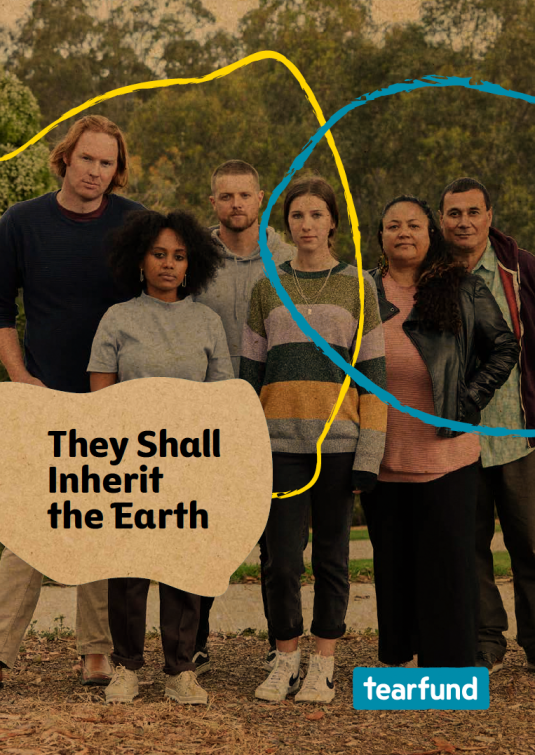Story by Emma Wyndham Chalmers. First published on ABC.net.au
An end to the climate wars is a good thing — and it presents a chance for Christians to consider the voice they can bring to this conversation.
Australia’s newly elected Prime Minister Anthony Albanese declared that we now have an opportunity to put an “end to the climate wars”. The results of the federal election suggest that Australians overwhelmingly want stronger action to address climate change — and their votes brought about a seismic political shift. Little wonder that Laura Tingle concluded, “2022 was, finally, the climate election”.
For too many years, divisive politics have stunted and derailed our national conversation about climate change, despite growing levels of concern among the Australian community and the effects of our changing climate becoming increasingly evident. Regardless of one’s political persuasion, an end to the climate wars is a good thing — and it presents an opportunity for Christians to consider the voice that we can bring to this important conversation.
Tearfund’s report on the attitudes of Christians towards climate change, released earlier this year, revealed that young Christians are highly engaged on climate change and more than three in five are very or extremely concerned about the issue. But they are not just concerned, they are also responding with civic action and more sustainable lifestyle behaviours in order to reduce their environmental “footprint”.
Two thirds of young Christians are also calling on the local church to lead the way in climate action, and many expressed some disappointment with the church’s relative silence on the issue. When asked what they wanted the church to be doing in response to climate change, one of the strongest themes to emerge in the report was a desire to hear it talked about more openly.
Read the reportTearfund has been a vocal advocate on the issue of climate change for many years. Climate change is one of the big drivers of global poverty and we hear first-hand from the communities we work with in Africa, Asia, and the Pacific about the dire consequences of extreme weather, drought, famine, and disease associated with rising global temperatures and changing weather patterns.
It is a profound injustice that people living in poverty, who contribute least to the problem of climate change, are more vulnerable to its effects and the least resourced to adapt. The Christian faith that underpins Tearfund’s mission — expressed in love for our neighbour and defending the rights of the vulnerable — compels us to speak up.
Over the years we have seen the faithful efforts of many Christians, from all points along the political spectrum, join us in prayer and petition on behalf of our world’s most vulnerable. Together we have called for justice and compassion to shape our national response to this issue, rather than selfish ambition or political gain. I know (because I am one of those many who have visited politicians and signed petitions) that these individual actions can feel like tiny drops in a vast ocean. But we now share a moment in which to give thanks — not for the victory or defeat of a political party, but because, on this particular issue of justice, we can see the evidence of a turning tide.
Our research found that 35 per cent of senior church leaders say they rarely preach on environmental matters, many citing the politicisation of the issue as a key challenge. However, it also revealed an appetite for change and it is possible that this altered political landscape opens up a new opportunity for the church to engage with the issue in new and hope-filled ways. The New Testament tells us, “Let your conversation be always full of grace, seasoned with salt” (Colossians 4:6). The opportunity — and challenge — is how we, as Christians, and together as the church, can season the climate change conversation in this new era with gospel salt.
It is a profound injustice that people living in poverty, who contribute least to the problem of climate change, are more vulnerable to its effects and the least resourced to adapt.
There is undoubtedly work to be done. Our national climate policy is better, but not enough to meet our fair share of what’s required. There are communities at home and overseas who need our support to deal with the effects of climate disasters — the recent floods in northern New South Wales and Queensland, and the relentless heatwave currently being experienced by communities in India and Pakistan, are just two examples — as well as the energy transition. There are young Australians, within the church and among the communities we seek to love and serve, who are looking for hope in a future that is shaped by the decisions their leaders make today.
To season a conversation with salt, Christians need to be present in it. And our love for God, for our neighbours, and for the gift of creation that God has given and entrusted to us, must be on the tip of our tongues. An end to the climate wars is a bold declaration. But the church should be equally bold in declaring that love, compassion, and justice must guide us in the way forward. If there is a war to win, surely it is that of love conquering fear.


